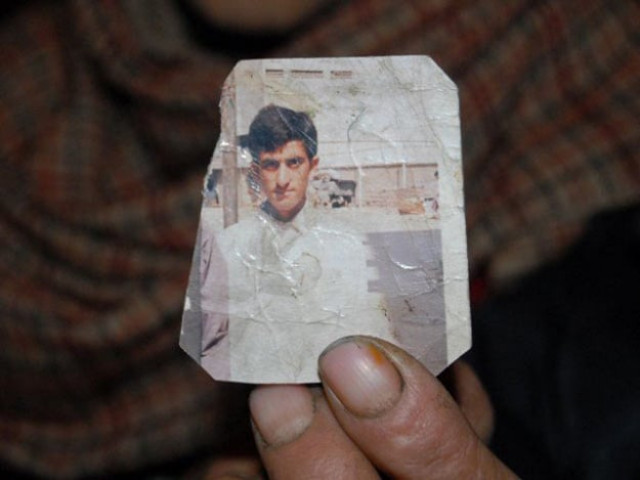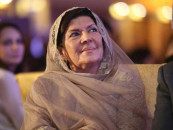Why Fatima Bhutto and other liberals are wrong on the execution issue
It's better to have some deterrent -- would-be criminals may think twice now -- than to have none at all

Shafqat is due to be hanged on Thursday morning. PHOTO: AFP
Yes, the law requires that the charge be proved beyond a reasonable doubt and what better way to 'prove' that than to extract a confession from a suspected murderer.
That police in Pakistan see torture and coerced confessions as a routine part of their interrogative work is not in doubt, but if that is the case then what do we do with people who have killed others as part of a deliberate plan to terrorise an entire society?
The favoured argument of liberals in Pakistan on this issue is that since the legal and judicial system is highly prone to manipulation and manufactured verdicts through corrupt judges, bought/false witnesses and shoddy police work, execution of judgements delivered by the courts especially in cases relating to punishment should be put on hold.
The problem is that for how long should such a moratorium last, given that in the case of the PPP government it didn't lead to any tangible improvements in the country's criminal justice system.
The biggest losers in this are ordinary Pakistanis who on one end suffer from militancy and its practitioners who hesitate not for a second in taking innocent lives, and a gutless and seemingly indifferent state which can't be bothered to even take this scourge head on, or improve its legal justice system.
Won't it be a far better course of action that while making improvements to the system of dispensation of justice - quite clearly a long term process - the state at least gets tough on those who have been convicted of heinous crimes, for which they have been given capital punishment?
Granted, Shafqat's case may be different: in fact, for him one must ask that what is the great hurry in executing him if it can be proved - as his family seems to have done earlier today by releasing his birth certificate to the media at a press conference in Muzaffarabad - that he was a minor when he committed the murder that he has been sentenced to death for?
However, this is an exception with clearly extenuating circumstances. The state can - and should - adopt a humane approach in his case while acting tough on other cases, where the perpetrators have been convicted of particularly heinous crimes and for which the law permits the death penalty.
After all, it is better to have some deterrent -- would-be perpetrators of serious crime may think twice before committing their deeds -- than to have none at all, which was the case when the moratorium was in place.
That is why Fatima Bhutto and the rest of the liberals are wrong on the executions issue; they want a permanent end and offer no alternatives.



















COMMENTS
Comments are moderated and generally will be posted if they are on-topic and not abusive.
For more information, please see our Comments FAQ